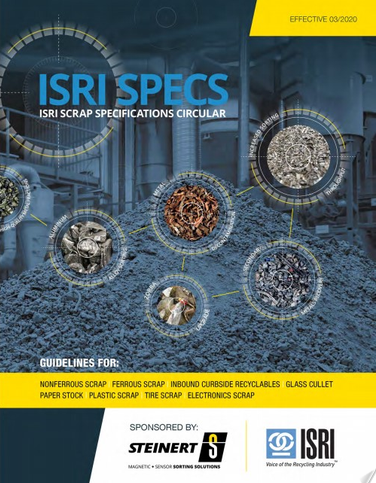In June 2022, Fred Fischer, ISRI’s Assistant Vice President of International Trade, traveled to Geneva to attend the Conference of Parties to the Basel Convention (COP-15). The Basel Convention is an international treaty that controls international trade in hazardous wastes and certain other wastes, including certain recyclable commodities. There are currently 188 parties to the convention, but the United States is not a party to the treaty. However, U.S. and international recyclers are potentially impacted by amendments to the treaty, as well as by substantive changes in interpretation and procedures under the treaty.
Among the recent agreed amendments was the reclassification of electrical and electronic equipment from non-covered wastes to covered wastes proposed by Ghana and Switzerland. The adoption of this amendment means that transboundary shipments of certain electrical and electronic equipment will be subject prior-informed-consent procedures of the Basel Convention beginning on Jan. 1, 2025. These procedures involve adhering to several pre-clearance and reporting protocols, namely that the country or economy receiving the materials must agree to accept them. Importers need to notify what is being shipped and confirm that the country receiving the materials can process the materials. It follows an amendment adopted by the Basel Convention in 2019 to reclassify many plastics as wastes under the treaty, effective Jan. 1, 2021.
During the discussions on e-wastes, the Bureau of International Recycling (BIR), which attended the convention on behalf of the international recycling community, informed the parties how spare parts may be harvested from e-waste for reuse; how electronic chips, metals, and other materials from circuit boards may be separated and sold; and suggested incorporating examples into the text of the processes used to separate recoverable materials from e-waste.
 “Recycling industry representatives informed the parties that electrical and electronic equipment should be differentiated, because much of these materials can be responsibly and economically recycled, thereby minimizing the need for disposal or the production of virgin materials,” Fischer recalls.
“Recycling industry representatives informed the parties that electrical and electronic equipment should be differentiated, because much of these materials can be responsibly and economically recycled, thereby minimizing the need for disposal or the production of virgin materials,” Fischer recalls.
Delegates discussed another issue of interest to the recycling industry: the establishment of a process for reviewing and potentially streamlining the prior informed consent process governing controlled wastes. “When hazardous and non-hazardous wastes become subject to prior informed consent under Basel, these procedural requirements add considerable costs and delays for importers and exporters, who must hold shipments until authorizations are received from competent government authorities in the exporting and importing countries plus all transit countries,” Fischer says.
Now that plastic wastes are controlled under the convention, and electrical and electronic waste will be controlled by 2025, there will be exponentially more materials and shipments subject to the prior informed-consent procedures. “There is growing interest in reforming the prior informed consent process, and the parties agreed to open a workstream to consider ideas for reforming the current process, such as digitalization, speeding response times, and increasing customs training, among other ideas,” Fischer says. “We’ve heard anecdotally that companies are currently facing significantly higher costs and delays in transboundary shipments of plastic wastes, and when electronic wastes are added, this will further stress the logistics system and increase the need for prior informed consent reform.”
There also was discussion but no final agreement on narrowing the definition of “preparation for reuse” and “catch-all operations,” which would effectively expand the definition of waste under the Basel Convention and further limit the ability to recycle many materials that are not currently treated as wastes under the Basel Convention.
Even though the United States is not a party to the Basel Convention, the U.S. government attends and participates in the meetings of the convention, but without a vote. ISRI’s U.S. members are indirectly impacted by the convention because trade with almost all other countries is regulated under the convention’s rules and incorporated into the national laws and regulations of U.S. trading partners. “ISRI should be a presence at the table,” says Cheryl Coleman, ISRI’s vice president of sustainability. “We need to have our voices there, and I think it may even be helpful to have more staff in attendance in the future because there’s a lot going on. We call ourselves the Voice of the Recycling Industry, this is an example of being that voice.”
The next Conference of Parties to the Basel Convention (COP-16) will be held from May 8-19, 2023, in the Bahamas. Intersessional work is anticipated during the intervening months, and ISRI and the international recycling industry will be participating in these discussions.
Photos courtesy of ISRI. Caption: The Conference of Parties to the Basel Convention (COP-15) was held in Geneva from June 6-17, 2022.
Additional Resources












